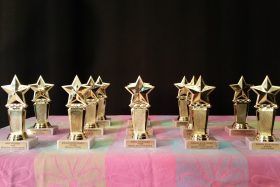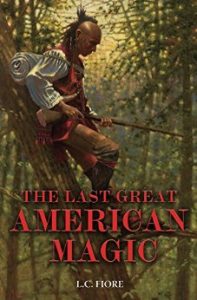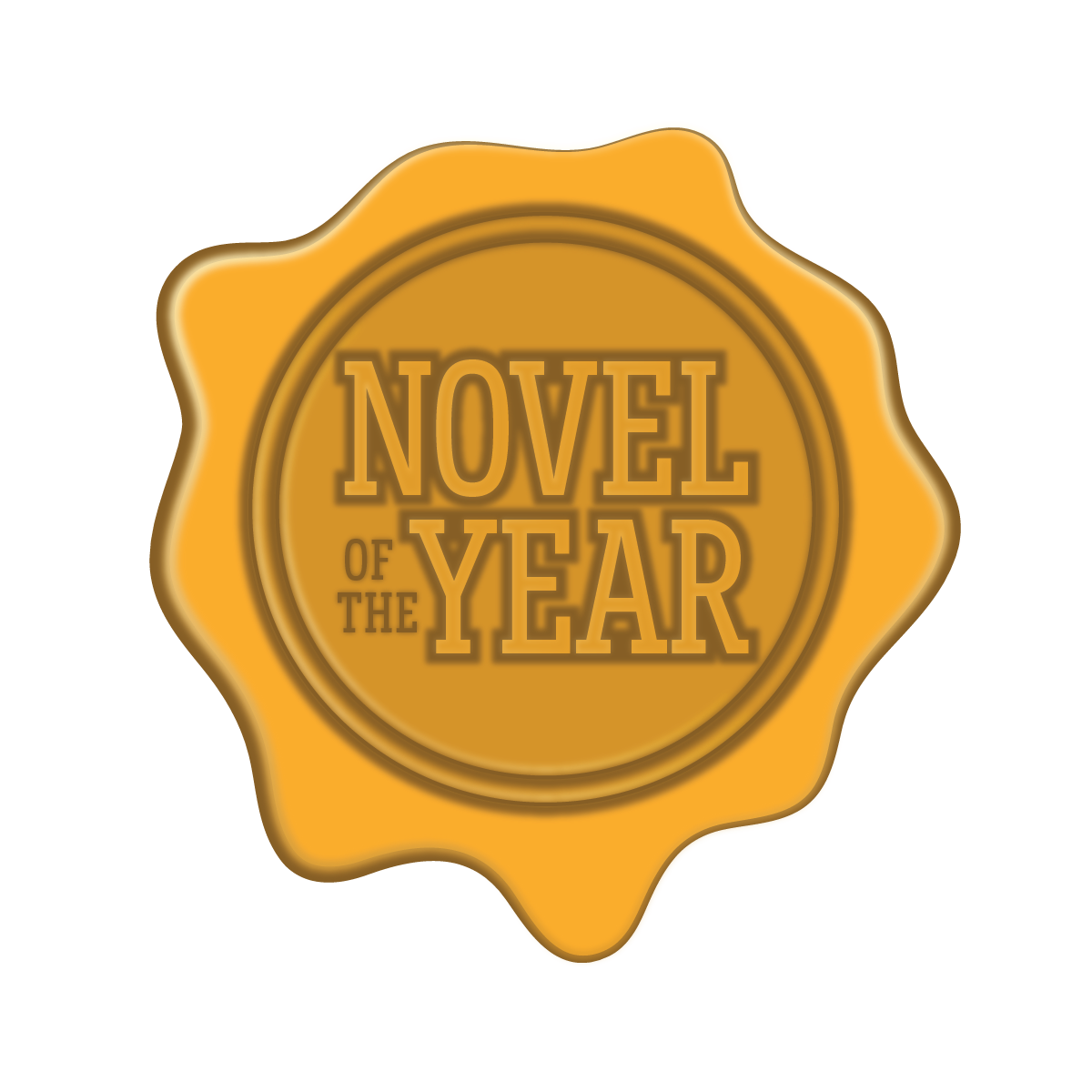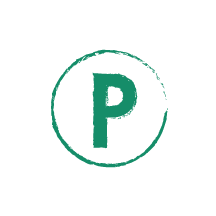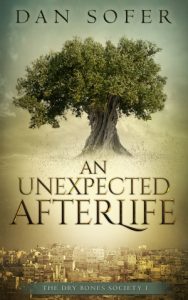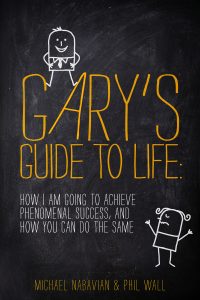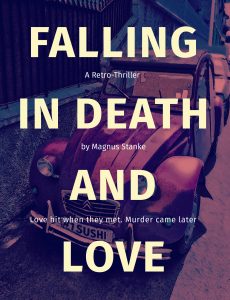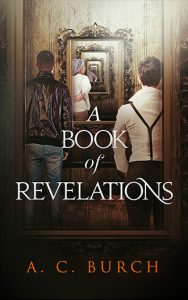The Rundown
The Recommendation
The Rating
The Links
The Reviewer
Bill Kieffer
Visit Bill Kieffer‘s website.For Pride Month, I wanted to introduce the Underground to The Bisexual Book Awards presented by The Bi Writers Association and its director, Sheela Lambert.
This marks the awards fifth year of the award's outreach efforts to raise awareness of the contributions that bisexual writers and publishers bring to the the literary scene. Contributions that are sometimes overlooked or assumed to contributed by a different aspect of the LGBT rainbow.
As a newly published queer author, I'm aware of the issues bisexuals face. Stereotyped as greedy or untrustworthy, if not outright dismissed as confused, bisexuals often find their sexual identities erased. As a man married to a straight woman, all of my friends had forgotten that I was bisexual almost as soon as I had "settled down." More than one friend had asked why I had written a book with gay characters or why I went to LGBT networking events since I wasn't "cruising." And these were people who knew me.
Bisexual literature may be the most Underground of the Underground Indy Book World, but we are digging our way up into the light.
I was lucky to have a chance to meet with Sheela Lambert and discuss bisexuality, books, the awards, and the future of bisexual voices.
About Sheela's Bookshelf
Sheela Lambert has more than one bookshelf, as so many of us can claim, but two of her bookshelves have a very special purposes.
In the usual "Shelfies" place of honor, we have her most active bookself. It is dedicated to this year's Bi Book awards. In addition to awards from previous years, pictures of bisexual icons, and Christmas cards from the White House, the shelves are full of this year's finalists:
Non-Fiction
Advice from a Wild Deuce: The Best of Ask Tiggy by Tiggy Upland, Jennifer L. Bonardi
The Changing Dynamics of Bisexual Men's Lives: Social Research Perspectives by Eric Anderson and Mark McCormack, Springer
Women in Relationships with Bisexual Men: Bi Men By Women by Maria Pallotta-Chiarolli, Lexington Books
Memoir/Biography
A House Full of Daughters by Juliet Nicolson; Farrar, Straus and Giroux / Macmillan
Virginia Woolf by Ira Nadel, London: Reaktion Books/ Chicago: Univ. of Chicago Press
Fiction
Loving Eleanor by Susan Wittig Albert, Persevero Press
The Regulars by Georgia Clark, Emily Bestler Books/Atria/Simon & Schuster
Vow of Celibacy by Erin Judge, Rare Bird Books
Romance
Change of Address by Jordan Brock, Riptide Publishing
Lovers Leap by JL Merrow, Riptide Publishing
Misinformation by Keelan Ellis, Dreamspinner Press
Out on Good Behavior by Dahlia Adler, self-published
Rock N Soul by Lauren Sattersby, Riptide Publishing
Stuck Landing by Lauren Gallagher, Riptide Publishing
What Remains by Garrett Leigh, Riptide Publishing
Erotic Fiction
24/7 by J A Rock, Riptide Publishing
The Best Laid Plans by Lauren Gallagher, Samhain Publishing
Club Trega by Nicole Wood, Riverdale Avenue Books
The Man on Top of the World by Vanessa Clark, Bold Strokes Books
Speculative Fiction [Sci-fi/Fantasy/Horror/Etc.]
An Accident of Stars by Foz Meadows, Angry Robot
Enchanted Soles edited by Sasha L. Miller, Less Than Three Press
For the Clan by Archer Kay Leah, Less Than Three Press
Labyrinth Lost by Zoraida Cordova, Sourcebooks Fire
Necrotech by KC Alexander, Angry Robot
The Painted Crown by Megan Derr, Less Than Three Press
Teen/Young Adult Fiction
Caught Inside by Jamie Deacon, Beaten Track Publishing
Look Both Ways by Alison Cherry, Delacorte Press / Random House Children’s Books
Not Your Sidekick by C.B. Lee, Duet/Interlude Press
Obscura Burning by Suzanne van Rooyen, Harmony Ink/Dreamspinner Press
Order in the Court by Casey Lawrence, Harmony Ink Press/Dreamspinner Press
Out on Good Behavior by Dahlia Adler, Self Published
The Sum of these Things by Emily O’Beirne, Ylva Publishing
Mystery
Assassins: Discord by Erica Cameron, Triton Books/Riptide Publishing
Order in the Court by Casey Lawrence, Harmony Ink Press/Dreamspinner Press
Poetry
The Body’s Alphabet by Ann Tweedy, Headmistress Press
Nec(Romantic) by Cathleen Chambless, The Gorilla Press
Graphic Novel/Memoir
ALPHABET: The LGBTQAIU Creators from Prism Comics edited by Jon Macy and Tara Madison Avery, Stacked Deck Press
Primahood: Magenta by Tyler Cohen, Stacked Deck Press / J.T. Avery Pacific
Anthology
ALPHABET: The LGBTQAIU Creators from Prism Comics edited by Jon Macy and Tara Madison Avery, Stacked Deck Press
Enchanted Soles edited by Sasha L. Miller, Less Than Three Press
The other bookshelf, further below, is basically the Bi Writers Association Library and, after five years, it appears to be taking over her apartment.
You've got such a marvelous history. In 1993, you hosted the first television show by and for the bisexual community, which was Bisexual Network. I've looked all over the Internet for a copy of it, or even just snippets of it. I have not been successful.
I might have a VCR tape of it, up there, somewhere. (Indicates apartment over looking the park)
It was a segment on a bigger show?
At first, I was a correspondent and segment producer for Out In The 90's. I had segments on their show. I left Out in The 90's because, well... even though they were including me, they had a habit of cutting my segments down suddenly and unexpectedly. My segments would be cut from three minutes to two minutes, in the middle of the segment, while on-air. So a screechy drag queen could have ten minutes. It was why other bi people had left before me. I had been warned, but initially, I was glad that they had given me the opportunity. But after a while, I became disenchanted.
We did get our own weekly show, Bisexual Network, for one season. And then I came down with Crohn’s Disease. Since I was the executive producer, producer, and host, the show collapsed without me.
I imagine that it's hard to find someone with the driving force to handle all three roles.
Right. Or three people to handle them. Originally, there were supposed to be other hosts. There was one other person who stepped up. We were supposed to alternate roles as hosts. But she did not see it as Bisexual Network. She saw it as her own show. So, even though she was bisexual, she didn't really feel compelled to cover bisexuality. Only astrology and... whatever. We had raised funds from the community to specifically create a bisexual show. After a couple of weeks, we had to fire her. So I took on producing and hosting all the shows.
Twenty-five plus year later, bisexuals are still having trouble finding representation that you see in media. This is true despite -- according to some surveys -- bisexuals are the biggest group in the queer community.
Right. When they say in the queer community, well... I'm not sure I would say that. In the population – Yes. But not the queer community. I think a lot of them are married and have kids... they are invisible.
That's what makes bi-erasure so easy, isn't it?
Yes. So, I don't really know that population. I know the people who have sought out a bi or a queer community. I don't have my finger on the pulse of the people in the closet.
When I was in my 20's, I had three people in my circle who considered themselves bisexual. But as they got older and wanted to settle down, they stopped representing. Of course, back then (the 80's), straight marriage was the only way to settle down. And, of course, Straight Privilege can be very attractive. I got caught up in that myself.
I never found straight privilege all that attractive. I came out to all my friends and my brother in high school and I was the only out female in college, where I was the female co-chair of the campus gay and bisexual group (the “and bisexual” part was what they had to add to get me to volunteer.) Of course, I didn't really have a bi community here in New York until the break-up of my marriage. I hadn't found a community at that point. I had one or two friends at different points over the years that were bi or gay. It wasn't until after I left my marriage that I discovered a bi community that was forming at that time.
Social Media has made that easier these days. No more running around putting up posters on lamp posts! How did you discover your first bi community? (And what year was that in?)
Right! (laughs) I found out about this group when I went to a feminist friend's birthday party. I met someone there who was running a bi women's group. The group met on a night when I had to take care of my kid. That's the thing when you have little kids; you're home with the kids. I was separated from my husband at that point, but I was able to eventually get that night free and go to the meeting.
That was when I really starting making a connection with a bi community as it was really forming into several different related groups.
There had been a bi group I had joined in the Eighties, but when the leadership changed, the new leaders were horrible psychos, so I had to leave.
In addition to being the founder of the Bi Writers Association, you've also founded the Bi Mental Health Professionals Association. You co-founded Bi Women of All Colors, co-founded the Coalition of Unity and Inclusion. You're also the organizer of the Bisexual Speakers Bureau, the last time I checked. I take it you're not the type to sit back and wait for problems to solve themselves?
(Laughter) That's true. I think, originally, upon becoming part of this community I was doing some occasional group leading; if the leader hadn't shown up and I was there, I would just sort of take it over and facilitate. I would organize events -- not for just each individual group but bi community-wide events. I started doing activist work.
Within a few months of finding the bi community, I started looking up when I came into the building and seeing this sign that said "Lesbian and Gay" but not Bisexual or Transgender. That started to bother me. I brought the issue up to the other women in my women's group and we started talking about it. A whole bunch of us formed a working group. We wrote a letter. We got some other people from outside our group involved: men, a bi woman black poet that I hadn't known before – other people connected us up. We had three or four representatives go into a meeting with The Center. That was the beginning of that. It took them about ten years to actually change the name and become fully inclusive.
I saw on the Internet that you were the driving force behind most of the name changes for the different organizations from Gay and Lesbian Whatever to LGBT Whatever.
Yes, here in New York. And I had something to do with the national name changes, but in not in so organized a manner.
In 2006, the same year you founded the Bi Writers Association, you led a successful campaign to convince Lambda Literary Foundation to add a bisexual award category to its literary awards, known as the "Lammys." Can you tell us a bit about that?
They had not had a Bisexual category in the 18 years that they had been operating. I think that was going to be the 19th? They had had a Transgender award, interestingly, for 10 years. When we contacted them about that, the feedback we got was that there were only about two bisexual books published a year, so we didn't really need a category for that. So, we had to go out and prove that there were enough for a category, which was a minimum of ten books.
That seems similar to an issue you had this year with the Bisexual Graphic Novel category. You only had the two entries, but you decided to go ahead with it.
Yeah, because although we would have liked more and we tried to get more. It was too hard to fit those into another category because they both combined non-fiction and fiction. None of the other categories were a neat fit for them.
I'm hoping the Graphic Novel/Memoir category will attract some attention and publicity, that we will have more submissions for it next year. I'm hoping.
I understand that you've served as a judge for the Lammy Awards ever since. How does the Lammy's Bisexual category differ from the Bi Writer's awards categories that you created in 2013?
Well, the Lammys are a big awards with 23 book categories plus several special categories. We started there with the one category (for bisexual books) and I worked very hard to make it go up to two at the Lammies. Bisexual Non-Fiction and Bisexual Fiction. By sort of volunteering myself to contact any bisexual book we could find and convince them to submit to that category. For a while, the Lammies had certain rules that helped us out. Like, one where we and the Transgender category were allowed to have double submissions. So, if someone had, for example, a biography of a famous person, it could both be in Gay Biography and the Bi category; because a lot of people like that are claimed by both the Bi and Gay communities. Because of their same sex relations but if they also had opposite sex relationships at times. There could be a dispute over which categories they should be in.
As long as they were allowed to put them in both, people were willing to be put in both. Since they felt they'd be more eyeballs on their book if they went into a Gay category, they want to put it there. As long as there could be the double submission, I could convince them to submit their book to the Bisexual category as well.
Once that rule had been taken away (for 2012 books), I lost the ability to do that.
People had asked us before then to do our own awards, but I felt like, "why reinvent the wheel?" The Lammies were doing it; they have a bi-category; we were up to two categories (Fiction and Non-Fiction). But when that rule was taken away, I was like, "I'm going to be doing a lot of work for nothing. I'm going to convince them (bi book authors and publishers) to submit, they are going to submit to the Gay (or Lesbian) Categories. Which is what was happening before, but now I can’t call them back and ask them to double submit.
That year, because I knew it would be mostly wasted energy, I didn't spend my entire fall trying to get all the bi books submitted. Lambda Literary wound up smooshing them down to one category -- Bisexual Literature – as a result. After they announced their finalists and I could see that the bi book finalists were cut in half. I felt really bad for the books. And I really didn't know what to do to help them. I felt the authors and publishers deserved better than that. If you have two categories, then you have five nominees in each and one winner in each. You get ten nominees getting recognition of some sort. With only one category, you only get only five nominees and one winner; half the amount of acknowledgments and awards that good books deserve.
I was mulling over what to do when this idea of doing our own awards came back to my mind. I decided to move forward with it. The first year was kind of a test case because I started it like a month before the awards.
You like those challenges!
I feel if the bi community needs something – and I can do it – I will push myself.
We had a "test case" awards. I mean, I had already read most of the books (up for the category) and I got a few other judges on-board. That was a lot of last minute reading. I pre-qualified the finalists and then the judges read those and selected the winners. Since that first year (of having a bisexual book award at the Lammies), I had already been throwing a reading for the bi writers that would come to town for the Lammies, so we just added the award ceremony onto that reading.
So you already had the organization with the bi writers and you had the event, and that's why you only had a month's notice.
Yes, because we piggy-back on the Lammie Awards, so it was a month before I had figured out this is what we should do. And it really worked out. People were really thrilled to get that acknowledgment that they wouldn't have received otherwise. So it seemed like something we should keep doing.
It does! I was very excited when I heard about it.
So, the next year we rolled out an official call for submissions, as you would any other award.
Is it harder to find the books now or the judges?
We have more categories as we expand them, so it does get a little tougher but we have a cadre of judges we use annually or they'll take a year off and then come back. We also find some new people every year. Our judges are very dedicated and we do ask a lot of them.
For some people, reading is more of a chore than others. Some can only read for enjoyment and it could be hard to find someone who can read for enjoyment and judge and for a commitment of time.
We ask them to write mini-reviews on each book because I really want to see that they're...y'know, if people just read the books and vote--I don't think they get that much out of it, so even though it's more work, it turns into sort of a running discussion. One person will post their mini-review (it really only has to be like a paragraph) and some stars to rate it. Then the other judges post theirs and it turns into a very layered discussion. Sometimes one judge will open up a whole new way of looking at a book, or an issue within it, to the other judges. Everyone keeps an open mind.
All those reviews help exposure for everyone, right?
Well, those are not made public because it's the judges' deliberations. It's secret. Which is kind of sad, because I think people would get a lot out of reading them. But judges opinions are anonymous and secret to protect them from any kind of backlash by authors or publishers.
Although they're secret, one judge will respond to what another one says, really developing a dialogue between the judges about what they feel about the books and also the criteria. How the books fit the criteria, how well they fit the criteria. We have 3 criteria: 1 is the general writing. Another is how well they write about bisexuality because this is a bisexual book award, so that's just as important. And whether the characters ever utter the word bisexual or don't and they're just in obviously bisexual relationships...their lives could be very bisexual without ever uttering the word. And the 3rd criteria is the quantity of bisexuality. If it's only mentioned on 1 page, it's not going to be a winner, even if it's written very well and the general writing is good. We need sort of an equal balance between those 3 legs of a stool. Our judges are on the lookout for all 3 of those to be fairly balanced.
Then there's the non-fiction books. For instance, if you have a biography—how well has that author researched the bisexuality of their subject and how well have they explained it and identified how it worked and how it was part of their life; that would be important.
In a novel, it would be important that the author show us something that we can learn about bisexuality from reading that book.
Exploring sexuality and bisexuality at the same time.
What do you mean, exactly?
Well, bisexual is different for a lot of people. When I first became an adult in the 80s, Dr. Ruth Westheimer said that there are no such things as bisexuals. And I loved her at the time.
Yeah, we had to educate her. We wrote her a letter and sent her a lot of books.
For some people, it's a lifestyle, sometimes bisexual means people have to accept you as being polysexual, or being committed in one relationship, you stop even looking at other women, if you're a bi guy and you get married...these are things we even wrestle with in my household. But it's a work in progress.
I think that the characters take care of that. Often, one character will explain bisexuality to another one or argue with something the other person has said to them about bisexuality and that is a way that the author can express their point of view on identity. It can be done very cleverly sometimes. Or a story could just show—like the book I just finished reading, there's a character who obviously once had a girlfriend or wife whom they broke up with but are still best friends. He meets the man of his dreams and they're together for five years and he has an accident and loses some of his memories and his feelings about his boyfriend. He remembers his feelings about his girlfriend/wife but doesn't remember his boyfriend. So that character can identify his emotional and sexual feelings and his emotional attachment to his wife when he wakes up from his coma but he has no idea who the boyfriend is. And then they have to rebuild their relationship. But the ex-wife is still very much part of his life as a friend, so she goes to the hospital, is there when he wakes up, comes over to help take care of him after he's released. So a book like that...it did talk about bisexuality a little bit. I think both the main characters are bisexual. The other one even has a child with his ex-wife.
Lot of room for exploration there...
So even though the romance is only between two people, an author can find a way to reassert their bisexuality in various ways while it’s still two-way romance. So, there's different ways of bisexuality coming up in a book.

When do you find time to read and how do you choose what to read?
All previous years of the Bisexual Book Awards, I have read about 50 books by the time we got to the voting. And plus had sort of skimmed through another 10-20. I'm the director and I'm not really a judge anymore. But when the judges are voting, I feel like I need to know my own opinion of the books, as well. I've tried to be really on top of that but this year, I had help to identify books to do outreach on, so I had twice as many books to outreach to than I have in previous years. And that was the biggest year—it was the most books to outreach I'd ever had before. I had over 200 books to outreach to, which usually involves multiple contacts. If you try to reach out to an author and that doesn't work, then you try the publisher, the author's website, Facebook, Twitter, etc...and it could be multiple tries. And I just ran out of time and couldn't read that much this year in advance. I'm trying to catch up now! [laughter]
But, to me, that's one of the best perks to doing this--a lot of free books! [laughter]
When the judging is over, what happens to the books? Do you redistribute them any way or add them to your own personal collection?
We have a Bi Writers Association library, so I keep all the books from our awards there, but if we have duplicates, they usually go out to volunteers who've helped out at different projects or different events.
I've given bags of books to the LGBT Center for their library, I've given books to the local community non-profit volunteer-run bookshop, but those wouldn't be the bisexual books. They're already taking over the living room and I’m looking for places where I can make space for them.

In the process of getting a book entered, you said you had to do some outreach, so I take it that it's not as simple as saying, "Hi, this is a bisexual book and we're going to consider it for our award."
Well, some authors will reach out to us and in some cases, the publishers have reached out to us. But mostly I was searching high and low to find bi-themed books. Like on the World Cat, combing through the Lambda Literary newsletter and the Gay & Lesbian Review and getting in touch with certain publishers and authors who were repeat offenders. But this year I had Kerry Price, one of our judges, helping me. She has a section on Library Thing called Bi-bliography, so she looks for her own bisexual books to make a comprehensive list of all the bisexual books for the year on there. This year, she started sending me weekly lists of books that she had discovered. So, in addition to the searching I had already been doing, I now had her on my team. She also helped me out with a list I have of famous bisexual people in history. She went through that list and then went onto Amazon just to see what books on those famous people had been written in 2016. And she found a whole bunch of books that were memoirs, biographies, collections of published articles & letters regarding a particular famous person, historical novels...she found a lot of books for me that I wouldn't have had the time to look for. I usually only have time to run a few names on Amazon.
Then the author or publisher has to agree to be considered?
I'm not sure what you mean.
Well, there's a fee of $25
First I would reach out to them, tell them this is what we have to offer, here's our submission form, check out our website for guidelines, and if they choose to submit, yes, there's a low $25 submission fee. This is what keeps us going. For the first couple of years I sold stuff from my closet on eBay to support the awards. But I ran out of stuff.
This year although our submission period is officially fall, it took me till February to complete my outreach and check in all the books and all the different pieces of each submission that has to go in different places. Because there were so many more books than ever before.
That's a good sign!
It's a very good sign! [laughter]
The first year [of the Lammies Bisexual Book Award], we came up with 10 books in 2006 and now we had over 200 this year in the Bisexual Book Awards. In 2006, there were 10 books that we ended up reading and judging. This year, there were 106 that were submitted, although we had over 200 that I had reached out to.
1 out of 2 ratio—that's not so bad.
It's usually a higher ratio but because there were so many more books than there were people and time... And then Trump happened.
Yes! That was going to be one of my questions!
I think all of us were glued to the news for a while because, every day, something was happening. It's still happening! Every day, something new happens and I wake up wondering if the world is still there. So, that slowed me down a little and I think the judges, too.
Yeah, I'm watching 7 more hours of news a week than I have previously.
Luckily, the Lammies are coming out late this year, so I still have as much time as I need to prepare our big event, since we piggy-back on them. We're going to have 10 authors who wrote some of the best books of the year, all of them finalists, and we're going to have amazing music from Rorie Kelly, who's an out-bi musician. She's played with us multiple times before but she's got a new album out with all new songs now. I saw her play at the museum across from Lincoln Center—I forget exactly the name of it—but they apparently have concerts there. And I saw her perform some new songs there, so I approached her about being in our program and she said yes. I’m really looking forward to that.
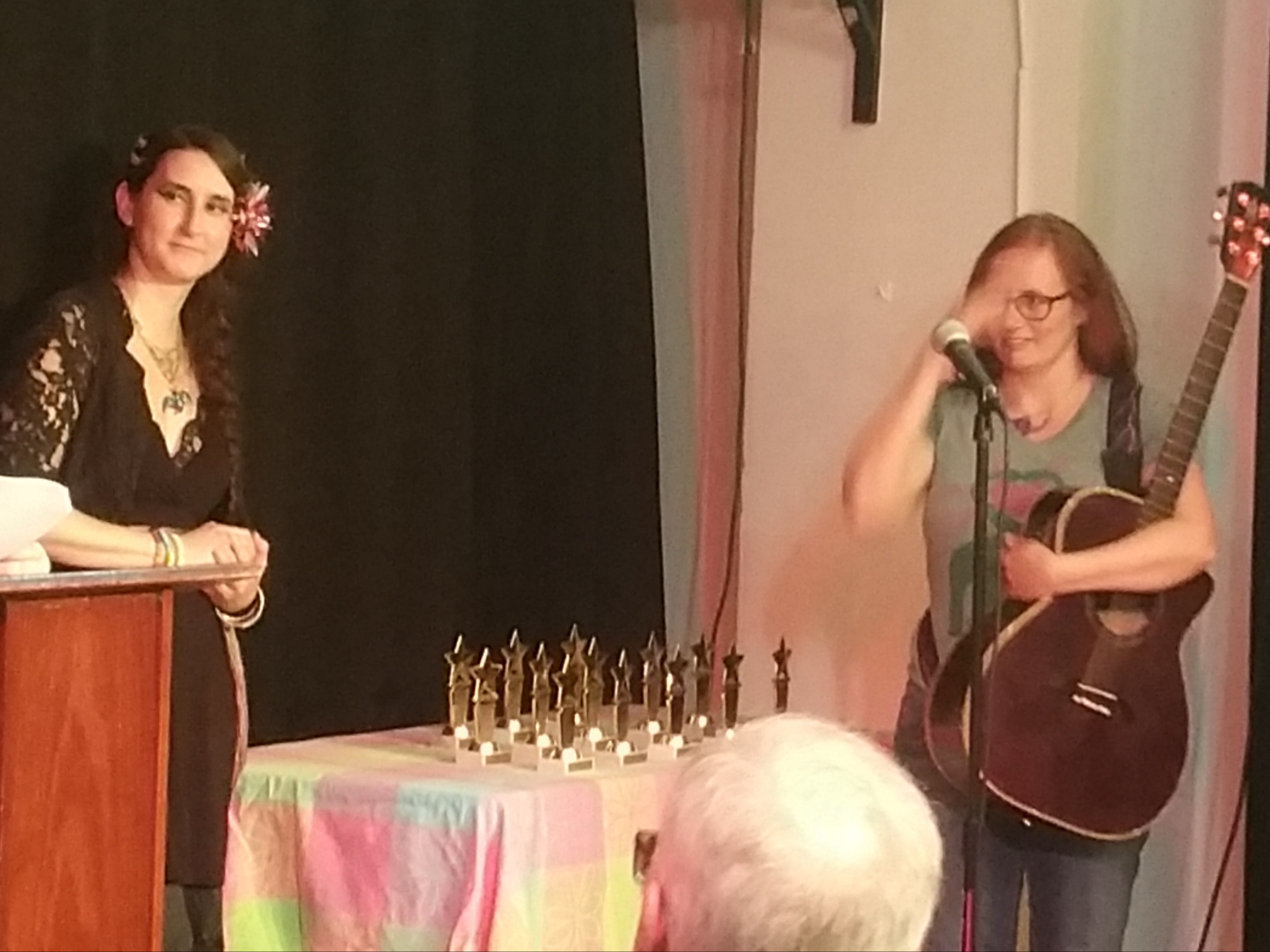
We always try to have a multi-arts event because readings wall-to-wall...
It can be a little dry?
Yes. So we try to "wake people up" every few readings with some music, or some art. This year, Tyler Cohen who does Primahood: Magenta, a comic about a butch-looking bi mother and her child…and then on odd pages, there are naked aliens.
I could get behind that! [laughter]
She is coming to do a reading, so I'm talking to her about doing a PowerPoint of her art panels, so that should be fun.
That's something to look forward to. What date is that?
It's Saturday, June 10th
Is it open to the general public?
Absolutely. It's at Westbeth, tickets will be $15 and they can be purchased in advance or at the door.
I'll be sure to put a link in the interview.
The link to advance tickets will be on the Bi-Writers' Association website but we're not there, yet. Now that we have most of our finalists, I'm starting to contact them and schedule them for the program. That's just starting now—I like to give them a couple months' notice so that they can make plans, flights, call their NYC friends, make arrangements to sleep on their couch.
A little couch-surfing never hurts. You've written a lot, too. Over the years, you've written a lot of articles, columns, pamphlets...which of those are you most proud of?
I did have over 300 articles posted to my column, [examiner.com]. Last summer, they shut down. They gave the writers a week's notice during the summer when most people are on vacation. Or at least I was on "email vacation". So I didn't find out until the end of the week and it was too late to try to save them.
Have you gone to Archives.org to see if any are in there?
I don't know about that.
It's the international archive library, they back up all the websites except for those that say, "Spider, don't crawl on me". You can go back in time using the "Wayback Machine", and you can look at different websites the way they were on different dates. So if Donald Trump posted something on the Internet, you can go back to that day to see what he posted.
Well, the news usually tells me [laughter]. There's a lot nowadays.
But in the case of stories that are posted, you can go back [and find them]
I will look there. I lost most of my articles and, if I have a draft of it, I don't know which ones are the finished draft and which ones were the final product. It really upset me when you can't rescue over 300 articles. Especially on a weekend when you had plans to see your grandchild and I forget what else I was supposed to do.
Important life stuff!
Yeah! Give us a month's notice that you're shutting down an entire website! Oh my god...
Some people don't like to admit to bad news.
But it was a news website!
Wasn't there also something that happened with a romance website where people were...just this past month or 2 months ago maybe, a romance site gave its writers 3 weeks to download and cancel their contract, they weren't going to get any royalty payments, any readers who kept their novels on the website's cloud were lost unless they knew in time to download them all.
That’s terrible! But, three weeks is a lot better than one week. If I had three weeks, I would have been able to save all of my articles.
But what I am most proud of – And I was really proud of the column and all the articles on there – is the book that I managed to get published.
Best Bi Short Stories, which is an anthology, so it wasn't all written by me. I wrote the introduction and I wrote one of the stories in there.
I started to try putting a bi book together in 1991 or '92. It sort of evolved into this book. I think the original concept was much different. It evolved into this book over a long time.
It took a really long time to get a publisher. In a way, that was good. The book kept getting better and better. I did end up at Circlet Press in 2014.
I am working on another now: an anthology of bisexual poetry. It'll be a combination of new work and classic work from the 20th Century as well as from history. There might be a few Shakespeare sonnets in there. We definitely want to get a wide variety from different poets. We're collecting.
Might there be a few Parisian works in there from the turn of the century?
We definitely want to get a wide variety from different poets. We are still collecting, so if anyone’s got some bi-themed poetry that they've written, they can just go to the biwriters.org website. There is a call for submissions on there. It's on our menubar (http://www.biwriters.org/poetry-anthology-submission/). I think the call was also posted on the Lambda Literary website at one point. If anyone knows of historical bisexual poems, please send us a link!
What types of books are eligible for the Bisexual Books Awards?
We accept traditionally published and self-published works, but they have to be in print. They can be ebooks as well, but we can't read or review every ebook out there. We limit ourselves to books that at least have a print-on-demand function. A lot of indy publishers are using print on demand these days.
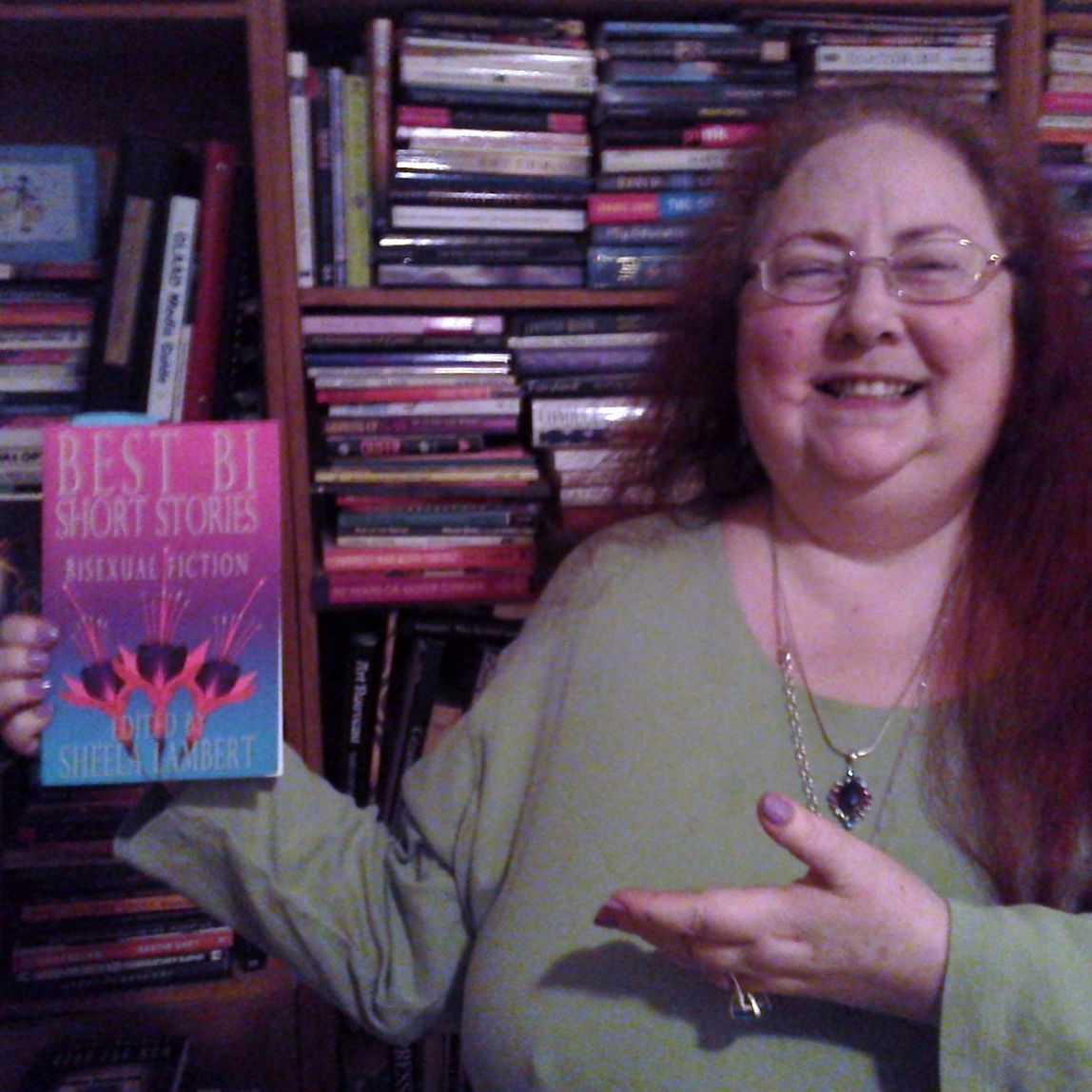
The print-on-demand technology has gotten very good these days.
Yes. Our book, Best Bi Short Stories is print-on-demand.
Cecilia Tan; I had approached her one year when we were judges together at the Lammies. I was thinking, this book has a lot of diversity in the stories, but it doesn't have as much diversity in the authors as I would like. I approached her about that because Cecilia’s part Chinese, I wanted to have more ethnic diversity. She submitted an amazing story; a really beautiful story that involves several Asian countries.
At the time, she [Circlet Press] was not doing any print books. She was only doing ebooks... and I think it was only erotica and sci-fi erotica. But she had just started a new imprint that didn’t have to be erotica and was starting to make print books again.
She'd known about the trials and tribulations of me trying to get a publisher. Once she was on the team – having her story in the book – I would keep the authors up to date on my progress.
When she started this new imprint, she was like, "Oh, the heck with it, I'm just going to publish it myself." She rescued our book, because the authors were starting to volunteer to put money forward to help get it published. She was like, "No, no, no. Authors should be getting paid!"
That was when you started the Kickstarter on that?
That was Cecilia's idea; to be able to pay the authors their royalties up front so they could get more money than an indy publisher could normally give them. And money for me, the editor, as well. Then, also, she was able to get her publishing expenses paid up front, because it is very expensive to put forth a book.
It was Best Bi Short Stories. All the stories were high quality. We were not about to put second-rate stuff in there. I was a very hands-on editor. If I saw a story that had a spark of something really good, but it was being clouded up, I would really work with the author. I would try to help them clarify details; to make it read smoothly. Some of these authors were first time being published. Rough edges, but they had a lot of talent, too.
Cecilia's story needed only a word or sentence changed, to help her story fit the theme better.
But back to the Kickstarter... Cecilia had rescued our book. I had never done a Kickstarter before. I had never paid much attention to Kickstarters. Being on disability, it's not like I can help any one out. [Cecila Tan] made me record on video what the book was about and a bit about our journey towards getting published. She edited the videos that I sent her. She sent me questions that I answered on video and she edited that. She put it to music; emotionally moving music. The video went on our Kickstarter.
She was a publisher with ebooks, so she was able to give rewards. Donors were able to get a lot of books for donating a small amount of money, so the Kickstarter was very successful.
I see the book is out. How are the sales?
She was able to pay herself back, and she was able to pay the authors more than their initial, basic payment, instead of waiting for years for the royalties to trickle in. It was nice to get a little more up front, for everybody. I got a small royalty check recently.
Was it all original short stories or a mix of new & reprints?
Well, when I got the initial submissions, most of them were original but by the time the book got published, more of the stories ended up being reprints. But the reprints were mostly published online or eBook or something like that, not in print.
There's a lot of "Best Ofs" out there, so reprints don't hurt.
Right, some of those are all reprints but we had a mix. I think most people who read our book probably had not read the stories where they were originally published on the internet or eBook. So it’s new to them. I’m very proud of Best Bi Short Stories and the fact that I managed to keep the project alive until it got published. I just didn't allow anything to stop me. That's the main way to get something done. You just keep trying and don't give up and you'll eventually accomplish it. Even though two of our authors died before it got published.
One [Jane Rule, who wrote Desert of the Heart, which was made into the film, Desert Hearts] I had a letter from, so her agent allowed us to publish it, but the other author we weren’t able to get permission, after the fact. I only found out she was dead because she wasn’t answering my emails saying we got a deal and she needed to sign her contract. I started googling all her different names online and stumbled across an online memorial page. I was shocked because she was a young mother of two small children. I was sorry to lose her story, which I loved, but that opened up a space for me to add a young African-American male author who wrote a lively story tailored to fit in the space her story would no longer be taking up.
That's how we got The Center to change their name. It was a 10-year project. Had we given up after the first letter we wrote, that would have been the end of it. But you just keep coming back to it every so often. We now have the Lesbian, Gay, Bisexual & Transgender Community Center (whereas it used have just “Lesbian and Gay” in the name. Same thing with the Pride March. It used to be the Lesbian & Gay Pride March for ages (I even joined the organization and helped put on the March for a couple of years going to many meetings and standing at their street booth doing sales for months) until finally we were successful and it was renamed the Lesbian, Gay, Bisexual, & Transgender Pride March. Now they just call it NYC Pride, which is fine with us, as long as we're not being left out. If it's a universal name, that's just as cool. Each group we went to, those were our two suggestions—either include the words “bisexual & transgender” or come up with something representative of all groups.
The film festival was another that was still titled Lesbian & Gay. Every year, I'd bug the director about it but nothing happened until finally we sat down and wrote an official letter. Proposals via official letters, addressed to an Executive Director and the board, I’ve found, work better than off-the-cuff conversations. Because eventually, they have to show it to their board and it becomes a concrete issue they must address. And what happened with the film festival is that they eventually got a new, younger board and they were like, "Of course—why wouldn't we do that?" Pauline Park from NYAGRA (New York Association of Gender Rights Advocacy), a transgender rights organization, worked with me on all three letters to local organizations, plus letters to several national ones that have now changed their names. I figured we could be more effective if we teamed up with transgender activists to work on some of these more inclusionary names.
The community has made a lot of ground in the past few years and we mentioned briefly that suddenly there was Trump.
Yes. Progress is going backwards now with Trump and Pence. They are known throughout the community as being very hostile to us and generally anti-LGBT based on legislation they've both supported and submitted to be passed. I don't expect to be getting any invitations to the White House anytime soon.
That's right—you were there in 2011, right?
Yes, I was there twice—I was invited to the LGBT Pride reception in 2011 at the actual White House, with all the president portraits (and Hillary’s as well), and another year there was a big bi meeting at the White House. I called it the “big bi cabal” because it was a semi-secret meeting, as many or maybe most of the meetings that take place in that building are, I guess. We say “the White House” but the White House has at least one other building that's considered to be the White House but it's an old, beautiful, administrative office building. It has long corridors with rooms and just doors and doors and doors. We had a meeting in that building—I think it's the same building Nunes went into to secretly brief Trump because I kept hearing people saying on TV that it was the White House but it wasn't the actual White House building.
Now Trump is going to take us off the Census, so the entire LGBT group will not be counted in the upcoming Census.
Yes, I heard about that. They’ve started collecting signatures for a petition against that, which I signed.
And Obamacare is being threatened. I know you're a healthcare worker in NY, a certified HIV counselor and psychotherapist...
Well, I was a certified HIV counselor with certification from New York State & New York City and I did counseling as part of that job but I'm not sure I would call myself a psychotherapist anymore because they changed the rules. It used to be that you could call yourself a psychotherapist without specific credentials--and I do have a bachelor's degree in psychology and additional training, like Hakomi therapy, which is a type of psychotherapy that uses an alternative to hypnosis to bring a person back to their childhood or other points in their life where they might have made emotional decisions that are still affecting them now. And I studied Gestalt therapy and many other techniques and schools of thought that people with their masters degrees would have taken. And both my parents were therapists, so I sort of grew up in that milieu—our house was sort of like "Esalen East" in the 70s. At some point I did do some counseling as a psychotherapist, but after the new rules, I couldn't call myself a psychotherapist or have a private practice any more because I don’t have a Masters degree etc. You can’t even say “counselor”. I’d have to call myself a “life coach” which just sounds silly to me.
Professionally, I was an HIV counselor and case manager at a non-profit agency at the time I became disabled.
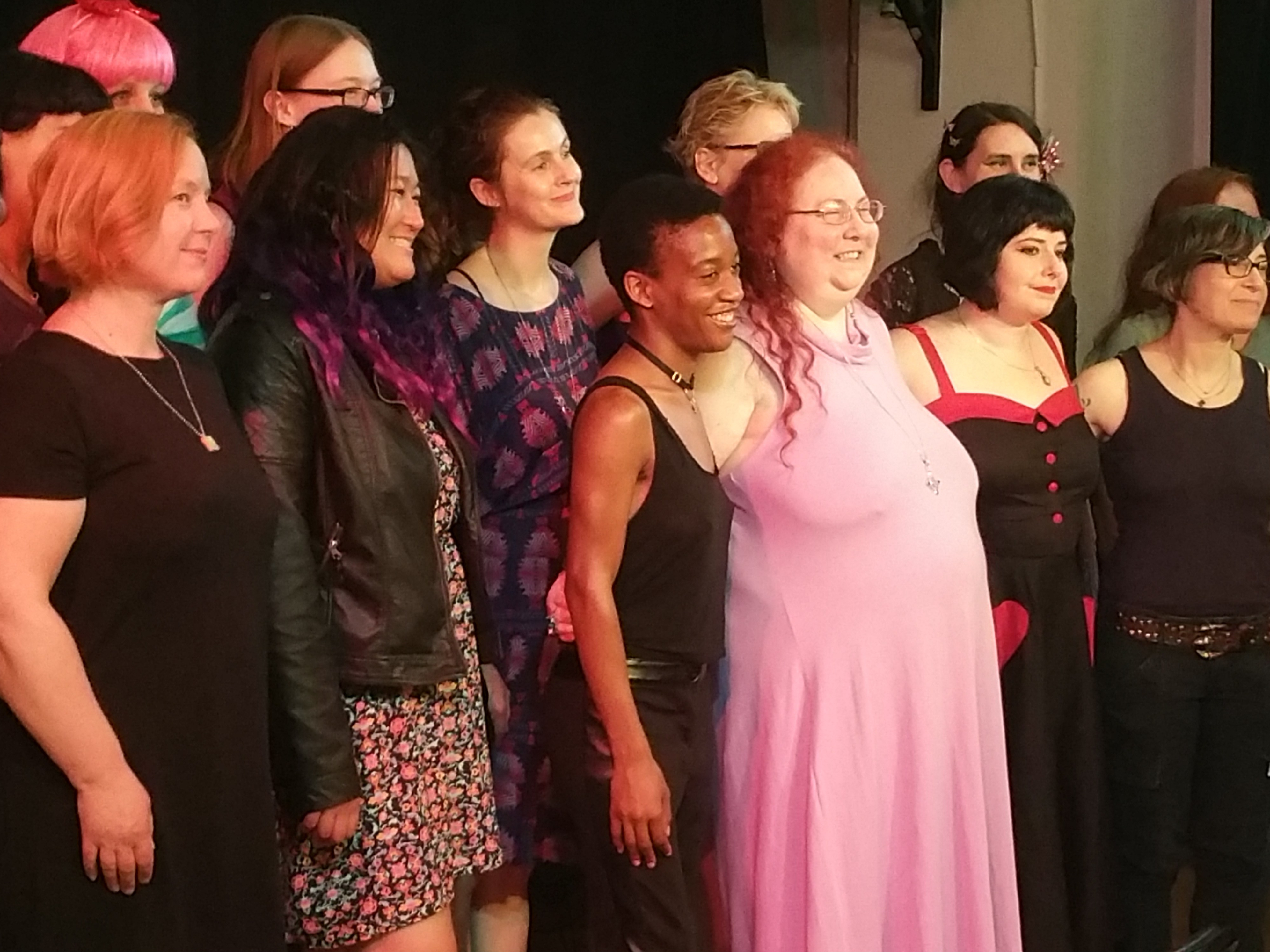
Is there anything else you'd like to touch on?
Yes--the purpose of these awards is to acknowledge and reward the authors, the publishers who publish bi-themed books, and to encourage them to continue to do it. From the time we started that one little category in the Lammies, where we identified maybe 18 books, ultimately winnowed down to 10 that fit our guidelines. Now, this year, for the Bisexual Book Awards, with 13 categories, I started with 200-something books and wound up with 106 submitted. That's a lot of progress.
If I had more help with outreach, I could have probably gotten many more books in. Outreach right now is me, myself, and I. If Kerry is going to help me again with identifying books and if she doesn't mind checking the famous bisexuals list against Amazon again to find recent books about them, I could get the list to her sooner so the work is more spread out during our call for submissions period. And we'll grow again next year.
The Winners
Since this was posted after the awards ceremony, rather than before as planned (my bad), I now have the pleasure of presenting the winners of the awards.
Non-Fiction
- Women in Relationships with Bisexual Men: Bi Men By Women by Maria Pallotta-Chiarolli, Lexington Books
Memoir/Biography
- A House Full of Daughters by Juliet Nicolson; Farrar, Straus and Giroux / Macmillan
Fiction
- Vow of Celibacy by Erin Judge, Rare Bird Books
Romance
- What Remains by Garrett Leigh, Riptide Publishing
Erotic Fiction
- The Best Laid Plans by Lauren Gallagher, Samhain Publishing
Speculative Fiction [Sci-fi/Fantasy/Horror/Etc.]
- The Painted Crown by Megan Derr, Less Than Three Press
Teen/Young Adult Fiction
- Look Both Ways by Alison Cherry, Delacorte Press / Random House Children’s Books
Mystery
- Assassins: Discord by Erica Cameron, Triton Books/Riptide Publishing
Poetry
- The Body’s Alphabet by Ann Tweedy, Headmistress Press
Graphic Novel/Memoir
- Primahood: Magenta by Tyler Cohen, Stacked Deck Press / J.T. Avery Pacific
Anthology
- Enchanted Soles edited by Sasha L. Miller, Less Than Three Press
Publisher of the Year
- Less Than Three Press
Bi Writer of the Year
- Advice from a Wild Deuce: The Best of Ask Tiggy by Tiggy Upland, Jennifer L. Bonardi
Home page for The Bi Writers Association

